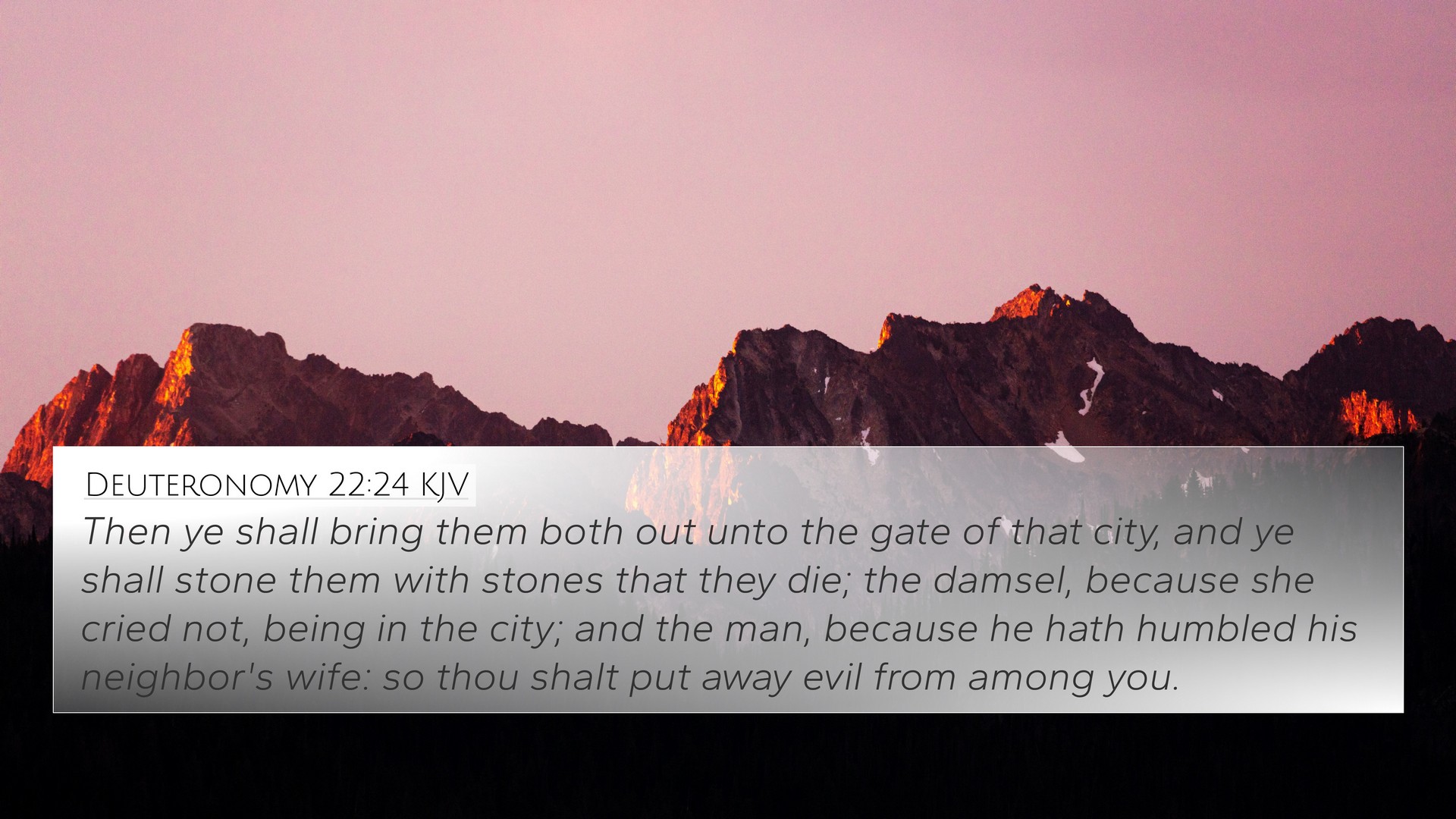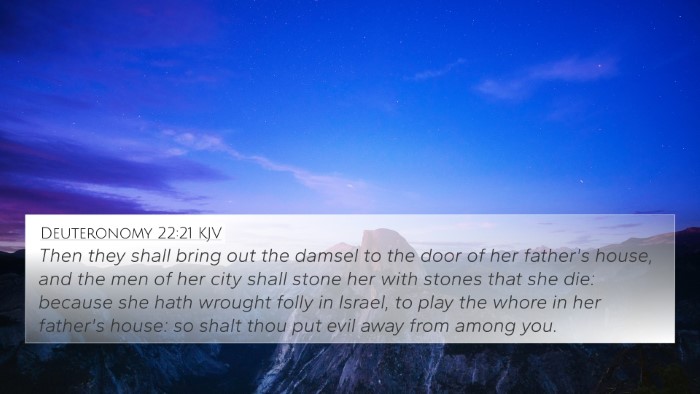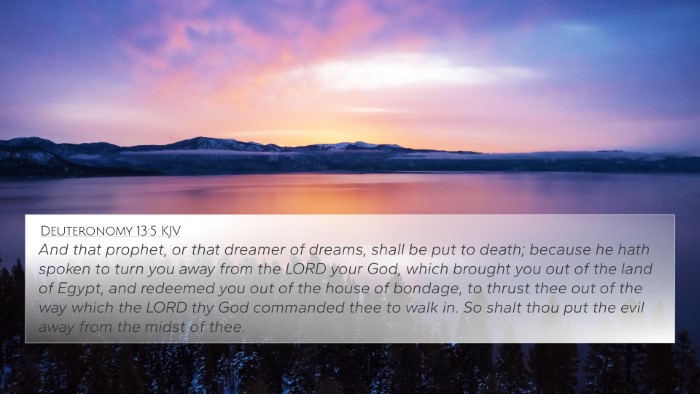Understanding Deuteronomy 22:24
Deuteronomy 22:24 states: “Then you shall bring them both out to the gate of that city, and you shall stone them to death with stones—the young woman because she did not cry out in the city, and the young man because he humbled his neighbor’s fiancée. So you shall put away the evil from among you.” This command emphasizes the seriousness of moral conduct and communal responsibility in ancient Israel.
Summary of Interpretations
This verse is part of a broader legal code that outlines how to deal with cases of adultery and violation of sexual morality. The underlying principle is that actions have consequences, and the laws serve to maintain social order and purity within the community.
Key Elements of the Verse
- Community Responsibility: It underscores the duty of the community to uphold moral standards and to take action when those standards are violated.
- Seriousness of Sin: The death penalty reflects the grave nature of sexual immorality in Israelite society.
- Judicial Process: The verse includes a legal procedure, indicating that accusations must be substantiated before capital punishment is enacted.
Theological Implications
The implications of this bondage of law are not simply historical; they encourage modern readers to reflect on the gravity of sexual sin and the importance of integrity within relationships. Through careful cross-referencing, one can discover connections between this and other Biblical passages.
Cross References
- Leviticus 20:10: Discusses the punishment for adultery.
- Deuteronomy 22:22: Addresses the sin of adultery explicitly.
- Exodus 20:14: Establishes the commandment against committing adultery.
- 1 Corinthians 5:1-5: Paul discusses sexual immorality in the church and the need for discipline.
- Matthew 5:27-30: Jesus amplifies the command against adultery to include lustful thoughts.
- Hebrews 13:4: Emphasizes the honor of marriage and warns against sexual immorality.
- Proverbs 6:32-33: Outlines the consequences of adultery.
Links to Other Scriptures
The connections between Bible verses help to facilitate a comparative Bible verse analysis and explore thematic Bible verse connections regarding morality. The severity of the laws pertaining to sexual immorality reflects a broader biblical theme focusing on the sanctity of human relationships and the dangers of sin.
Comparative Analysis
When looking at Deuteronomy 22:24 alongside Deuteronomy 22:22, one sees that both address sexual sin but each with unique responsibilities assigned to individuals and the community. This comparison reveals a deeper understanding of how sexual integrity was defended in Biblical law.
Tools for Bible Cross-Referencing
Utilizing a Bible concordance or a bible cross-reference guide assists readers in identifying connections between Old and New Testament texts. For those studying the scriptures, these resources provide invaluable guidance in discovering links between various passages and themes.
Conclusion
Deuteronomy 22:24 serves as a critical study point on how societies governed by covenantal law prioritized moral behavior. Understanding its place within the greater tapestry of scripture through systematic cross-referencing illuminates its ongoing relevance.
Keywords for Further Study
- Bible verse cross-references
- Connections between Bible verses
- Bible verses that relate to each other
- Cross-referencing Bible study
- How to find cross-references in the Bible
- Identifying connections between Old and New Testament
- Cross-referencing Psalms with New Testament teachings
In summary, Deuteronomy 22:24 functions as a sobering reminder of the serious nature of sin, both in historical context and in contemporary application, encouraging readers to pursue a life of moral integrity grounded in biblical teaching.










